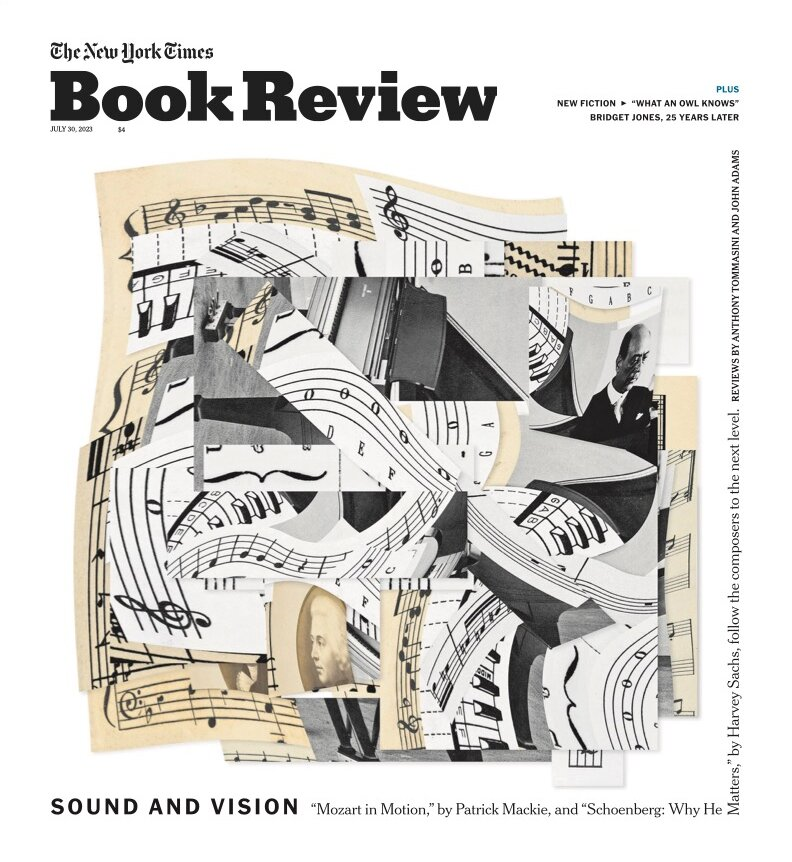

THE NEW YORK TIMES BOOK REVIEW – JULY 30, 2023:
On this week’s cover, we feature biographies of composers Arnold Schoenberg and Wolfgang Amadeus Mozart that emphasize the extent to which each was a singular genius attuned to his culture and times; our reviews are by Anthony Tommasini (formerly The Times’s chief classical music critic) and the composer John Adams.
Masterpieces Galore: When Mozart Met the Enlightenment

In Patrick Mackie’s “Mozart in Motion,” the socially observant composer embraces modernity.
Musicians tend to be wary of ascribing specific meanings to music or making too much of a piece’s extra-musical associations. In one of his Norton Lectures at Harvard in 1973, turning to Beethoven’s “Pastoral” Symphony, Leonard Bernstein asked the audience to forget all about “birds and brooks and rustic pleasures” and instead concentrate on “pure” music. He then demonstrated how every phrase of the entire first movement is derived from little motifs of notes and rhythms in the first four bars of the score.
Make It New and Difficult: The Music of Arnold Schoenberg

John Adams reviews “Schoenberg: Why He Matters,” in which Harvey Sachs explores the artistic, academic and spiritual life of a 20th-century cultural giant.
In 1955 Henry Pleasants, a critic of both popular and classical music, issued a cranky screed of a book, “The Agony of Modern Music,” which opened with the implacable verdict that “serious music is a dead art.” Pleasants’s thesis was that the traditional forms of classical music — opera, oratorio, orchestral and chamber music, all constructions of a bygone era — no longer related to the experience of our modern lives. Composers had lost touch with the currents of popular taste, and popular music,

